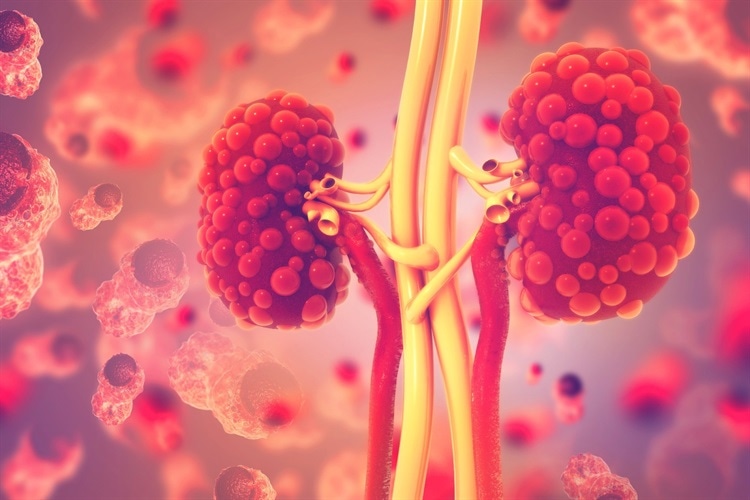the a (CKD). End-stage renal disease (ESRD), which necessitates dialysis or kidney transplantation, has an extremely high risk of developing from chronic kidney disease (CKD). There is no effective treatment for CKD at the moment. Therefore, it is crucial to identify the underlying pathological mechanisms of CKD in order to develop efficient treatment plans that can both prevent and treat the condition. DNA-PKcs may be a potential target for the treatment of CKD, according to a recent Nature Communications study.
Renal interstitial fibrosis, which is linked to an unusual expression of profibrotic factors like transforming growth factor-beta 1 (TGF-1)-induced myofibroblast activation and epithelial dedifferentiation, is a significant pathological feature of CKD. The activation of fibrotic genes like fibronectin (FN), -smooth muscle actin (-SMA), and collagens by TGF-1 is a key role for this condition. In addition, it is also associated with the Warburg effect-like metabolic reprogramming of kidney cells.
When studying the relationship between metabolic dysregulation and interstitial fibrosis, researchers noticed that myofibroblasts and renal tubular epithelial cells, which make up kidney tissue, underwent metabolic reprogramming. This occurrence affects how CKD develops.
There is a significant decrease in fatty acid oxidation (FAO) and a metabolic switch to glycolysis when kidney cells undergo metabolic reprogramming. Interstitial fibrosis and immune cell infiltration are the results of these manifestations. Numerous animal models of renal fibrosis have demonstrated that fibrosis can be reduced by pharmacological or genetic methods that inhibit glycolysis and restore FAO.
DNA-dependent protein kinase (DNA-PK), which is a trimeric complex consisting of a catalytic subunit (DNA-PKcs) and a Ku70/80 heterodimer, is activated by reactive oxygen species (ROS) or DNA double-stranded breaks (DSBs). DNA-PK facilitates nonhomologous end joining (NHEJ) by connecting programmed DSBs, which is extremely important for lymphocyte recombination. Therefore, DNA-PKcs mutations inhibit the development of T and B lymphocytes.
DNA-PKcs plays an essential role in various metabolic functions, such as phosphorylation of the transcription factor USF-1 that promotes fatty acid synthesis induced by insulin and metabolic deterioration during aging. In addition, a previous study revealed that DNA-PKcs regulates the target of rapamycin (mTOR) activation. Even though DNA damage response (DDR) has been linked to renal epithelial injury, little evidence has been documented about its role in epithelial de-differentiation and myofibroblast activation in progressive CKD.





